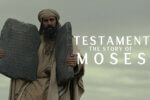John Wesley followed a time-tested approach: “In essentials, unity; in non-essentials, liberty; and in all things, charity.” Wesley believed that the spirit of charity needs to take into consideration the limits of human understanding. He observed, “To be ignorant of many things and to be mistaken in some is the necessary condition of humanity” and therefore, “As to all opinions which do not strike at the root of Christianity, we think and let think.” (Expanded article here.)
So what are the essentials?
For example, do they include a specific view of eschatology or hell? There are four biblically backed views of eschatology and four of hell and a lot of church splits have happened over these views. The church I was saved in had a church split over whether men should have beards or not! Is that really an essential? Is that really worth starting a new denomination over?
The Essential Doctrines: The Apostles’ Creed
The Apostles’ Creed deals primarily with beliefs about the Trinity.
I believe in God, the Father Almighty, creator of heaven and earth. I believe in Jesus Christ, His only Son, our Lord. He was conceived by the power of the Holy Spirit, and born of the Virgin Mary. He suffered under Pontius Pilate, was crucified, died and was buried. He descended to the dead. On the third day He rose again. He ascended into heaven and is seated in the right hand of the Father. He will come again to judge the living and the dead. I believe in the Holy Spirit, the holy catholic [universal] Church, the communion of saints, the forgiveness of sins, the resurrection of the body, and the life everlasting. Amen.
Amazing how many doctrines we hold dear and fight over that are never mentioned in the Apostles’ Creed. Notice that it doesn’t cover any of the views of eschatology or any discussion concerning hell. And communion of saints sure sounds interesting.
Since the Apostles’ Creed does not cover how the apostles lived, let’s move on and explore that next.
The Essential Lifestyle: Live by the Spirit (Gal. 5:25)
- We are created in God’s image and are to rule and reign with Him (Gen. 1:26-28).
- Having God’s Spirit/breath allows us intimate daily communion with God. This was God’s original intent and has never changed (Gen. 2:7; 3:8; John 20:22).
- Sin breaks our intimacy with God, causing us to live under law (Gal. 5:18; Rom. 8).
- Jesus modeled God’s original intent, living in intimacy with God, doing nothing of His own initiative, but only what He heard and saw His Father doing (John 5:19, 20, 30; 8:26-38).
- Jesus’ death released many provisions to mankind, including becoming a “partaker of the divine nature” (2 Pet. 1:1-6), freedom from sin’s power (Rom. 8), new life in Christ (Gal. 2:20), restored intimacy with God (Jn. 10:27; Rom. 8:14), restored capacity to rule and reign (Eph. 2:6), and commission and power to overthrow the kingdom of darkness through healing and deliverance just as Jesus did (1 John 3:8; Matt. 12:27; Luke 11:20).
- We live by the Holy Spirit (Acts 1:8, 2:1-4; Eph. 5:18) and manifest His fruit and power (Gal. 5:22-25; 1 Cor. 12:7-11). The Spirit anoints us to fulfill the Great Commission to disciple all nations (Matt. 28:19; Gal. 5:25).
- We speak things into existence: God spoke the worlds into existence (Gen. 1 & 2). We are made in His image, and we also create as we speak (Heb. 11:3; Prov. 18:21; Mark 11:23, 24), with our goal being to speak the things God has spoken to us.
As imitators of Christ, we can say: “The Spirit of the Lord is upon Me, because He has anointed Me to preach the gospel to the poor; He has sent Me to heal the broken-hearted, to preach deliverance to the captives and recovery of sight to the blind, to set at liberty those who are oppressed” (Luke 4:18).
Errors We Avoid
Error 1: To reject, condemn, attack and call people heretics when they disagree with us.
We choose blessing rather than cursing (James 3:10). We respect those who disagree without becoming disagreeable. By choosing this, we obey Christ’s command to show honor (1 Pet. 2:17, 3:9), and prove to the world we are His children, in that we love one another (John 13:35). Maintaining honor and love are some of the weightier issues Jesus spoke of in Matthew 23:23 and Luke 11:42.
Error 2: Believing you can’t learn from non-Christians. (For example, “You can’t learn anything from a New Ager.”)
God granted revelation to Pharaoh, an evil king (Gen. 41) as well as to Belshazzar (Dan. 5). God gave insight to Jethro, Moses’ father-in-law, as to how to govern (Ex. 18). Everyone can receive God’s revelation. Therefore we can learn from all.
Error 3: To live in reaction to error.
Some suggest we should live in reaction to the New Age, making sure we don’t do anything similar to what they do. The Bible never instructs us to live in reaction to error. We are to explore truth and live in the truth. We believe what the Bible and the Spirit instruct us to believe, period! We do not care if every cult group or no cult group believes things similar to what we believe.
Error 4: To believe that the Bible, coupled with man’s reason, is enough to discover truth.
We believe the Bible is the inerrant, authoritative, divinely-inspired Word of God (2 Tim. 3:16). Even as Jesus “opened the Scriptures” to the disciples on the Emmaus road (Luke 24:32), so today, we need the Holy Spirit to assist us by opening the Scriptures to our understanding (Prov. 3:5). We “reason together” with God (Isa. 1:18) rather than reasoning on our own. We ask God for wisdom and tune to the river of the Holy Spirit Who flows within. This results in insight, illumination and revelation. {eoa}
Mark Virkler, Ph.D., has authored more than 50 books in the areas of hearing God’s voice and spiritual growth. He is the founder of Communion With God Ministries and Christian Leadership University (cluonline.com), where the voice of God is at the center of every learning experience. Mark has taught on developing intimacy with God and spiritual healing for 30-plus years on six continents. The message has been translated into over 40 languages, and he has helped to establish more than 250 church-centered Bible schools around the world.
This article originally appeared at cwgministries.org.







Leave a Comment
You must be logged in to post a comment.